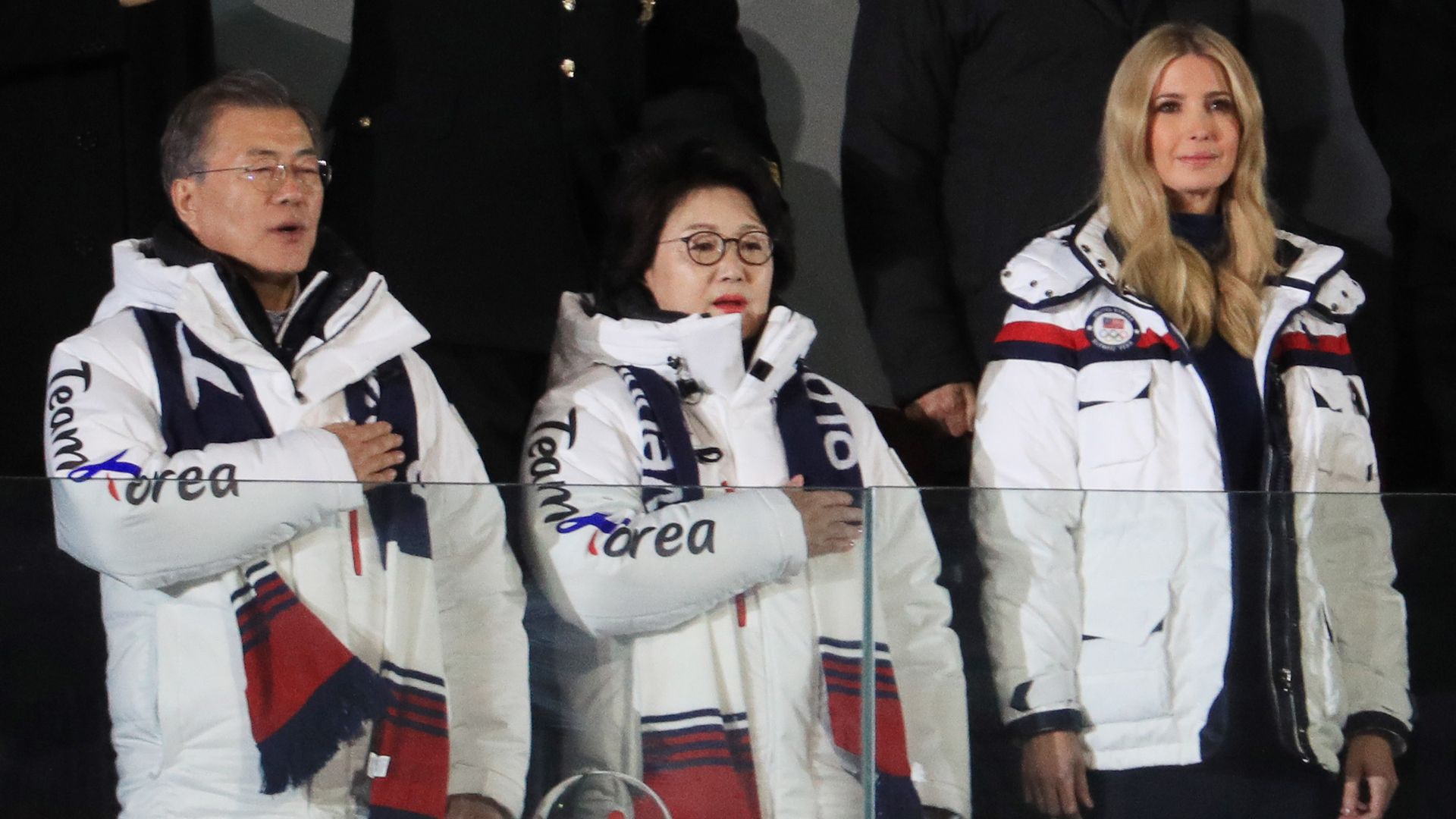Updated Feb 27, 2018 - Sports
Expert VoicesOlympics end with North Korean diplomacy stuck at the starting line
Add Axios as your preferred source to
see more of our stories on Google.

South Korean President Moon Jae-in with his wife, Kim Jung-sook, and Ivanka Trump at the closing ceremony of the 2018 Winter Olympics in Pyeongchang. Photo: Sergei Bobylev / TASS via Getty Images
